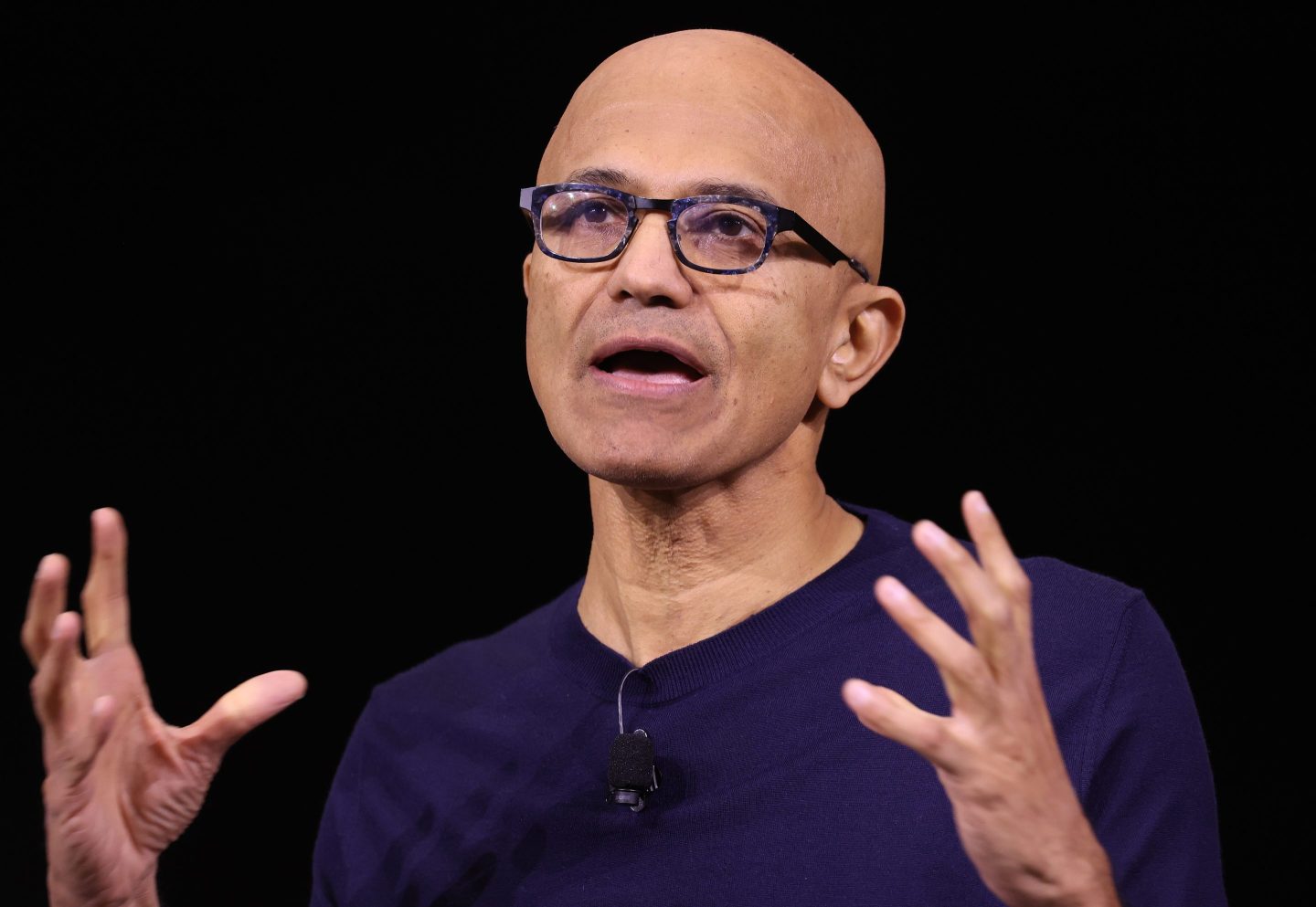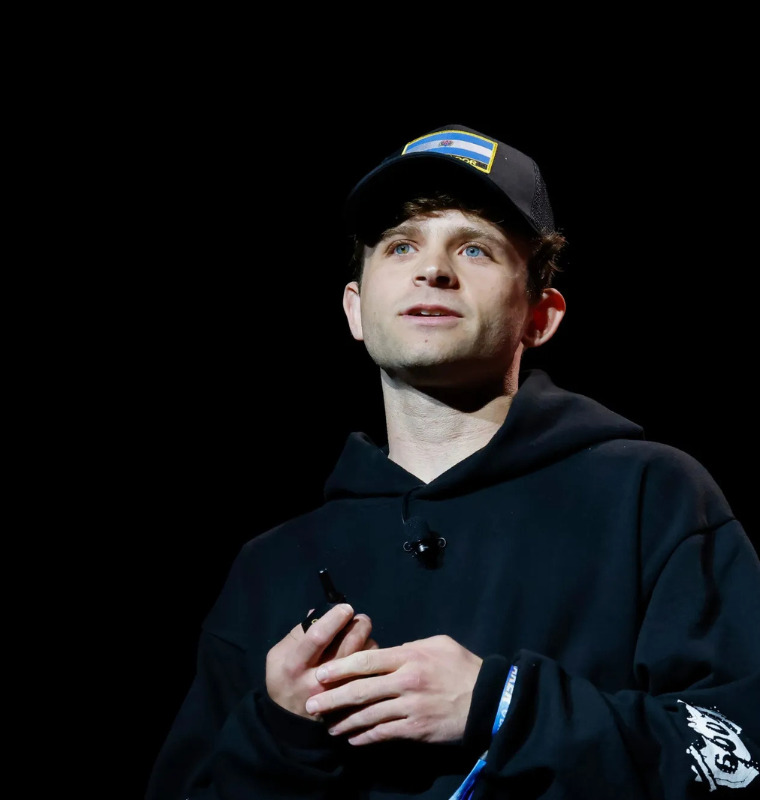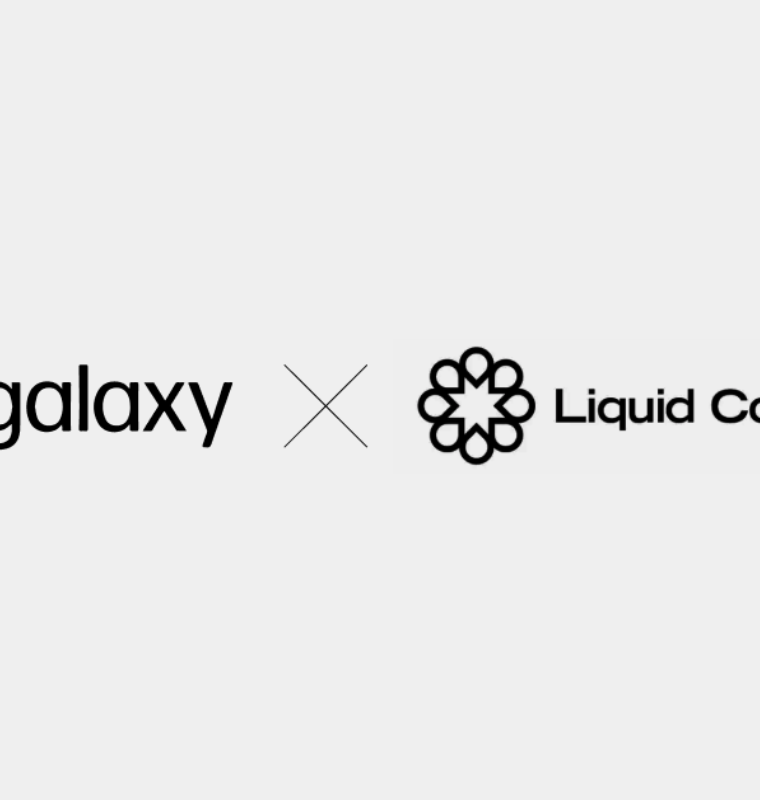Microsoft CEO Satya Nadella Says Mass Layoffs Have Been “Personally Difficult” Amid AI Transformation
Microsoft CEO Satya Nadella Says Mass Layoffs Have Been “Personally Difficult” Amid AI Transformation
By
Calder Monroe
Last updated:
July 25, 2025
First Published:
August 6, 2025

Getty Images
Microsoft’s Layoffs Weigh on Nadella as Company Surges Past $500 Stock Milestone
Microsoft CEO Satya Nadella has publicly acknowledged the emotional weight of the company’s sweeping layoffs this year, which have impacted more than 15,000 employees across departments in 2025. In a heartfelt internal memo sent to Microsoft’s workforce of over 200,000 people, Nadella wrote that the decision to eliminate jobs has been “weighing heavily” on him — even as the company continues to thrive in a competitive tech landscape.
Just days after announcing the latest round of 9,000 job cuts, Microsoft’s stock closed above $500 for the first time on July 9, signaling investor approval of cost-cutting amid a broader push toward artificial intelligence-led growth.
“Progress Isn’t Linear” — Nadella Reflects on Difficult Decisions
In his memo, Nadella addressed the paradox of success in today’s tech industry. “This is the enigma of success in an industry that has no franchise value,” he wrote. “Progress isn’t linear. It’s dynamic, sometimes dissonant, and always demanding.”
The layoffs, according to Nadella, were necessary to streamline operations and refocus on long-term goals, especially as Microsoft transforms from a traditional software company into a leader in AI-powered solutions. Despite significant reductions, he emphasized that the company’s overall headcount remains roughly flat, following adjustments in hiring and business strategy.
Wider Tech Industry Trends: Over 80,000 Jobs Lost in 2025
Microsoft’s cuts are part of a broader wave of job reductions sweeping across the technology sector. According to Layoffs.fyi, over 80,000 jobs have been eliminated industry-wide in 2025 alone.
Other tech giants and platforms are also downsizing. Recruit Holdings, the parent company of Indeed and Glassdoor, recently announced 1,300 layoffs in its HR technology segment, citing the rising integration of artificial intelligence as a key reason, Bloomberg reported.
The shift toward automation and AI efficiency is causing many tech firms to reconsider how they allocate human capital — and Microsoft is no exception.
Employee Reactions: Discontent and Disillusionment
While investors have largely cheered Microsoft’s leaner structure, the mood inside the company has been more somber. On LinkedIn, some employees expressed disappointment with how the company’s values appeared to conflict with business decisions.
One senior staffer posted, “I have loved working for this company, still do, but this has done so much damage to that loyalty because it has shown that Microsoft’s espoused values do not apply to business decisions at the macro level.”
Such sentiments underscore the emotional impact of layoffs, even at highly successful and financially secure companies.
Microsoft’s Market Position Remains Strong Amid AI Push
Despite internal turbulence, Microsoft remains the second most valuable public company, trailing only Nvidia, whose chips power much of the global AI infrastructure. Microsoft continues to dominate with its Windows OS, Office suite, and Azure cloud platform, all of which have benefited from enterprise demand and cloud-based AI integrations.
Microsoft’s collaboration with OpenAI, the creator of ChatGPT, has also given it a massive edge in AI development. Azure customers now rely on Microsoft to provide access to Nvidia H100 GPUs and large language model training capabilities at scale.
AI at the Core of Microsoft’s Evolving Mission
In his memo, Nadella urged employees to rethink the company’s mission for the AI era. Since taking over as CEO in 2014, his mantra has been to “empower every person and every organization on the planet to achieve more.”
But today, he says empowerment must evolve:
“It’s not just about building tools for specific roles or tasks. It’s about building tools that empower everyone to create their own tools. That’s the shift we are driving — from a software factory to an intelligence engine.”
This pivot marks Microsoft’s long-term ambition to lead the transition from traditional software to AI-driven platforms that give users the power to innovate independently.
Looking Ahead: Earnings Report and Strategic Focus
Microsoft is scheduled to release its fiscal Q4 earnings on Wednesday, with analysts closely watching for further updates on AI monetization, headcount changes, and operating margins. Investors will also be paying attention to the company’s response to expiring EV tax credits, global tariff threats, and growing competition from rivals like Amazon and Google in the cloud and AI sectors.
While Microsoft continues to chart new heights on Wall Street, Nadella’s memo reflects a recognition that growth often comes with sacrifice — and that leadership means navigating both market wins and internal morale with care.
Popular articles
Subscribe to unlock premium content
Disney’s Timeless Magic and How the Entertainment Giant Continues to Shape Culture and Innovation

Imran Khan’s Economic Missteps Amid Political Chaos in Pakistan

The Philippines’ Digital Shift How Remittances and BPO Are Fueling Growth

Disney’s Timeless Magic and How the Entertainment Giant Continues to Shape Culture and Innovation

Imran Khan’s Economic Missteps Amid Political Chaos in Pakistan

Disney’s Timeless Magic and How the Entertainment Giant Continues to Shape Culture and Innovation









